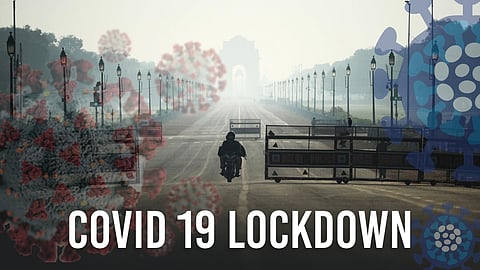
- Latest Legal News
- News
- Dealstreet
- Viewpoint
- Columns
- Interviews
- Law School
- Legal Jobs
- हिंदी
- ಕನ್ನಡ

The Delhi High Court recently quashed criminal proceedings against a man for allegedly violating COVID-19 guidelines after his arrival from France in February, 2020 [Sarmad Ahmed v. State].
Justice Mukta Gupta observed that the man had arrived in India before the guidelines came into effect and it was well-settled that the restrictions couldn’t be imposed retrospectively.
“The very genesis of the prosecution case against the petitioner is faulted,” the Court said.
The man was booked under Section 188 (disobedience to order duly promulgated by public servant) of the Indian Penal Code and Section 3 of the Epidemic Diseases Act, 1897.
It was alleged that though the petitioner was directed to home quarantine from March 16, 2020 to March 30, 2020, it was noticed that on March 19, 20 and 23, he had violated the norms and visited places without informing the competent authority, thereby endangering the life of the general public.
According to the records, the man had returned from France in February, 2020, when according to his counsel, no orders directing mandatory institutional or home quarantine were in force.
The Court was informed that it was on January 30, 2020 that the World Health Organisation had declared COVID-19 as a public health emergency. Long after the petitioner’s arrival to India from France on February 5, 2020, the Government of India had on March 12, 2020, issued guidelines in the wake of the pandemic. Those who had travelled to and from China, Italy, Iran, Republic of Korea, France, Spain and Germany were required to follow mandatory quarantine of 15 days.
The counsel further stated that on March 14, 2020, a person stating to be from the Health Department came the petitioner’s house and asked about his itinerary, which he revealed.
The petitioner had also told him that he did not have any COVID-19 symptoms. Subsequently, on March 22, 2020, the Government of India announced a one-day janta curfew, followed by a complete lockdown for a period of 21 days in order to contain the spread of the disease.
The petitioner was booked on April 7, 2020 in an FIR which he learnt about on December 4, 2020. He was summoned on July 2, 2021.
The issue before the Court was whether the guidelines issued by the government, which were applicable from February 15, 2020, could have been made applicable to the petitioner, who arrived in India on February 5, 2020,
It observed,
“It is well settled that a restriction cannot be imposed retrospectively. The guidelines dated March 24, 2020, were made applicable from February 15, 2020. However, the petitioner had entered India on February 5, 2020, and not on/or after February 15, 2020.”
The Court noted that the chargesheet stated that the man had violated the quarantine order of March 16, 2020 that was in force till March 30, 2020, when the guidelines were applicable to people who had come on or after February 15, 2020.
The petitioner, however, was found not in that category and as a result, the "very genesis" of the prosecution case was "faulted”.
Further, the Court said though there was a chargesheet with respect to the violations on March 19, 20 and 23, 2020 till March 30, 2020, in the police’s status report, it had been alleged that the petitioner was also out on April 3, 2020.
“It is thus evident that an all together new case is now being made out in the status report which is contrary to the charge sheet. Be that as it may, besides the conflicting stands in the chargesheet and the status report, the fact that once the guidelines issued on March 24, 2020, were applicable for people entering India on or after February 15, 2020, the same could not have been given further retrospective operation for the petitioner, who had arrived in the country on February 5, 2020, therefore the petitioner cannot be subjected to the prosecution for the offences as mentioned above,” the order added.
The FIR registered against the petitioner was thus quashed.
The petitioner was represented by Advocates MR Shamshad, Arijit Sarkar and Nabeela Jamal. Additional Public Prosecutor GM Farooqui appeared for the State.